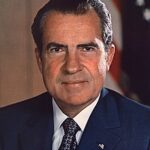The Chilean coup of 1973 represents one of the most controversial Cold War interventions. President Nixon authorized extensive CIA operations to destabilize Chile’s democratically elected government. This decision fundamentally altered Chilean society for decades.
The Decision Behind the Chilean Coup
Nixon feared Salvador Allende’s Marxist government would spread communism across Latin America. The CIA received authorization to spend millions destabilizing Chile’s economy 💰. Operation Track II aimed to prevent Allende’s inauguration through military intervention. When initial efforts failed, the CIA continued covert operations throughout Allende’s presidency.
CIA Operations in Chile
The agency funded opposition parties, strikes, and propaganda campaigns against Allende’s government. CIA operatives worked directly with Chilean military officers planning the coup ⚠️. General Augusto Pinochet emerged as the key military leader willing to overthrow democracy. The September 11, 1973 coup succeeded after three years of destabilization efforts.
International Context
The Chilean coup occurred during intense Cold War competition between superpowers. Nixon’s administration viewed any socialist government as a Soviet threat 📊. Chile’s copper nationalization also threatened American corporate interests in the region. The decision reflected broader U.S. policy of preventing leftist governments in Latin America.
Impact:
The Chilean coup created devastating consequences that lasted for decades across multiple sectors. Pinochet’s military dictatorship transformed Chile through violence and authoritarian rule. The impact extended far beyond Chile’s borders into international relations.
Human Rights Catastrophe
Pinochet’s regime killed over 3,200 people and tortured thousands more during 17 years. The dictatorship systematically eliminated political opposition through state terror 🔥. Detention centers operated throughout Chile, targeting suspected leftists and intellectuals. Families still search for loved ones who disappeared during the regime.
Economic and Social Transformation
The military government imposed radical free-market policies that increased inequality dramatically. Unemployment soared while social programs faced severe cuts 📉. Chile became a testing ground for neoliberal economic theories. The policies benefited wealthy elites while impoverishing working-class Chileans significantly.
International Relations Damage
The Chilean coup severely damaged U.S. credibility regarding democracy promotion worldwide 🌍. Latin American countries increasingly distrusted American interventions in their affairs. European allies criticized Nixon’s administration for supporting military dictatorships over democracy. The controversy contributed to congressional restrictions on CIA covert operations globally.
Long-term Democratic Legacy
Chile’s transition to democracy in 1990 left deep social divisions. Truth and reconciliation efforts revealed the extensive human rights violations. The military maintained significant political influence even after democratic restoration. Chilean society continues addressing the trauma and inequality from Pinochet’s era.
